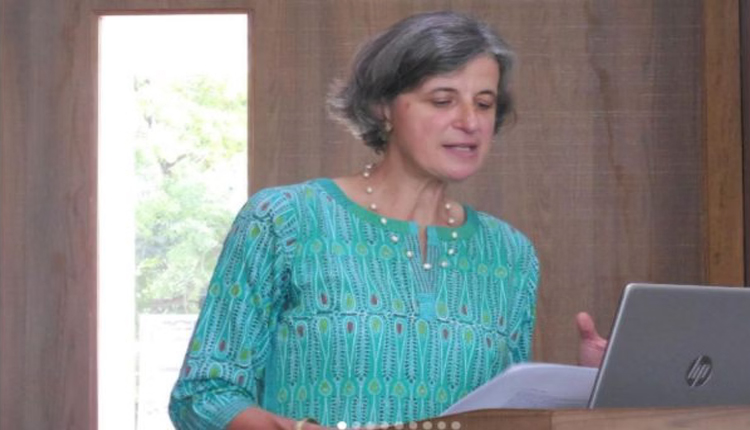New Delhi: In a move that has ignited fierce debate over academic freedom and visa enforcement, renowned Italian-born Hindi scholar Professor Francesca Orsini was unceremoniously denied entry at Delhi’s Indira Gandhi International Airport on Monday evening, despite clutching a valid five-year e-tourist visa.
The professor emerita at London’s School of Oriental and African Studies (SOAS), whose lifelong scholarship has profoundly enriched global appreciation of Hindi literature and South Asian cultural narratives, was promptly informed of her deportation — no explanations tendered, just a curt directive to arrange her own return flight to Hong Kong, where she had transited en route from a conference in China.
Government sources, speaking anonymously to agencies like ANI and PTI, later clarified the rationale: Orsini was blacklisted in March 2025 for allegedly breaching tourist visa stipulations during a prior visit. “She engaged in activities inconsistent with tourism, such as research-orientated interactions,” one official asserted, deeming it a routine global protocol to bar re-entry for such infractions.
Tourist visas, they emphasised, prohibit participation in political, religious, or scholarly pursuits — yet critics decry the vagueness, questioning whether casual conversations with Hindi litterateurs, attending a kavi sammelan, or immersing oneself in cultural events could truly qualify as violations. Orsini, who last visited India in October 2024 without a hitch, planned this trip merely to reconnect with friends, underscoring the arbitrariness.
Orsini’s illustrious trajectory adds poignant irony to the episode. Hailing from Venice University, where she graduated in Hindi, she honed her expertise at India’s Central Institute of Hindi and Jawaharlal Nehru University (JNU) before earning her PhD at SOAS. Her important 2002 book, The Hindi Public Sphere 1920–1940: Language and Literature in the Age of Nationalism, carefully explains how Hindi became a unifying force during colonial changes, mixing different language traditions in a way that questions single cultural stories. She has lectured at Cambridge and mentored generations on Urdu-Hindi synergies, earning accolades for bridging East-West intellectual divides. Now 68, her ouster — potentially the fourth such denial for a foreign academic in recent years — has catalysed outrage.
Historian Ramachandra Guha lambasted it on X as “the mark of a government that is insecure, paranoid, and even stupid,” praising Orsini’s illumination of India’s heritage. TMC MP Sagarika Ghose decried the “narrow-minded, regressive” Modi regime for stifling open excellence India once championed, while Siddharth Varadarajan of The Wire called it an “insult to knowledge’s very essence,” highlighting bureaucratic overreach that equates scholarly curiosity with subterfuge. Pro-government voices, however, hail it as safeguarding national interests against “anti-India” elements, with users like @MumbaichaDon applauding the thrift — no taxpayer funds wasted on her exit.
This incident, echoing denials to activists like Kshama Sawant, amplifies alarms from global watchdogs like Human Rights Watch about eroding civil liberties in India.
As Orsini departs, her plight poses a stark query: In a nation professing cultural pride, can genuine custodians of its linguistic soul be turned away at the gate? The silence from officialdom only deepens the chill.



Comments are closed.